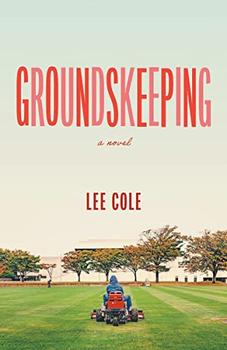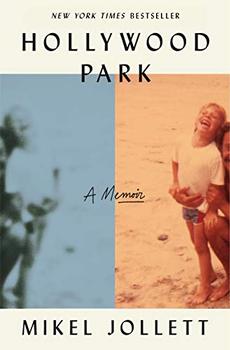Summary | Excerpt | Reading Guide | Reviews | Beyond the book | Read-Alikes | Genres & Themes | Author Bio

A Memoir of a Family and Culture in Crisis
by J.D. VanceIn this illuminating memoir, Vance recounts his trajectory from growing up a "hillbilly" in southwestern Ohio to graduating from Yale University's Law School. Along the way, he explores the societal reasons such a journey is uncommon, from systemic poverty to drugs and the cycle of abuse.
Vance's problems can be traced back to his mother, whose childhood was marred by her parents' drinking and fighting, including an incident where her mother set her father on fire. When Vance was nine, his mother threatened to kill him, and he was forced to lie about the incident in court to stay out of the foster care system. When he was a young teen, she begged him for a urine sample she could use to pass a drug test. Whenever Vance's mother's addictions and her revolving door of boyfriends consumed her life, her parents took him and his sister in. As a result, Vance was raised largely by his grandparents, who were Ohio transplants from Jackson, Kentucky.
Vance served four years in the Marine corps with a tour of duty in Iraq before attending Ohio State University, the former providing just as much of an education as the latter. With his diligent work ethic, he was able to graduate in two years, holding down two jobs all the while, after which he was accepted into law school at Yale. From there, Vance managed to navigate the world of elite academia and job interview dinners that required knowledge of silverware etiquette and the finer points of networking. He eked out an effective performance and landed a job with the help of a great mentor, but his background did not set him up for success, and he reports that he continues to deal with the emotional fallout from his troubled childhood.
Vance provides historical context of the Rust Belt's poverty problem, beginning with the aggressive recruitment of Southerners in the 1940s-50s by the factories and mills up North. As a result, families like his had to leave behind the relatives that acted as a support system and assimilate into an alien suburban culture (see Beyond the Book). When the factories downsized, or shut down entirely, the local population, who could not afford to relocate, was stuck there without gainful employment. Meanwhile, a culture of lowered expectations has developed in which 20% of a class entering high school will not graduate, and a college degree is uncommon. Relationship models at home teach young men that "drinking beer and screaming at a woman" is appropriate behavior. Furthermore, many distrust the government and the mainstream media and believe the world is stacked against them. As Vance astutely puts it, "You can't believe these things and participate meaningfully in society."
Elegy will not please anyone on either side of the political spectrum who does not understand nuance. Those on the left might insist that the "hillbillies" Vance writes about are only victims of their own ignorance, or even that their white privilege makes them less deserving of sympathy. Vance's assertion that the main problem this demographic had with President Obama is that he is intelligent, wealthy, and articulate is certainly specious as is his defense of payday loan services. Vance's fellow conservatives might take issue with some of his harsh judgments, his insistence that many of the working class poor are in fact lazy, that they lie about going to church, breed and spend money indiscriminately, and in short need to "wake the hell up."
The text holds a vital sociology lesson from a drowning segment of the American population, "working class" people with no work and no safety net to support them. They are marginally educated and distrustful of government. They exist in a state of "learned helplessness" where they feel little agency in their own lives. They are in denial about their circumstances, which, unfortunately, will make it difficult for Vance's wisdom to reach them. It would be remiss not to mention that they likely caused the surprising upset in the 2016 U.S. presidential election, but the issues at stake for Vance are not overtly political, but personal. He counts his blessings for the advantages he did have and expresses concern for the plight of those who grow up with even less. He fully admits that "no single book, or expert, or field could fully explain the problems of hillbillies in modern America," but this is an excellent place to start for those willing to put aside their prejudices and really listen.
![]() This review was originally published in The BookBrowse Review in March 2017, and has been updated for the
May 2018 edition.
Click here to go to this issue.
This review was originally published in The BookBrowse Review in March 2017, and has been updated for the
May 2018 edition.
Click here to go to this issue.

If you liked Hillbilly Elegy, try these:

by Lee Cole
Published 2023
An indelible love story about two very different people navigating the entanglements of class and identity and coming of age in an America coming apart at the seams - this is "an extraordinary debut about the ties that bind families together and tear them apart across generations" (Ann Patchett, best-selling author of The Dutch House).

by Mikel Jollett
Published 2022
Hollywood Park is a remarkable memoir of a tumultuous life. Mikel Jollett was born into one of the country's most infamous cults, and subjected to a childhood filled with poverty, addiction, and emotional abuse. Yet, ultimately, his is a story of fierce love and family loyalty told in a raw, poetic voice that signals the emergence of a uniquely ...
Your guide toexceptional books
BookBrowse seeks out and recommends the best in contemporary fiction and nonfiction—books that not only engage and entertain but also deepen our understanding of ourselves and the world around us.